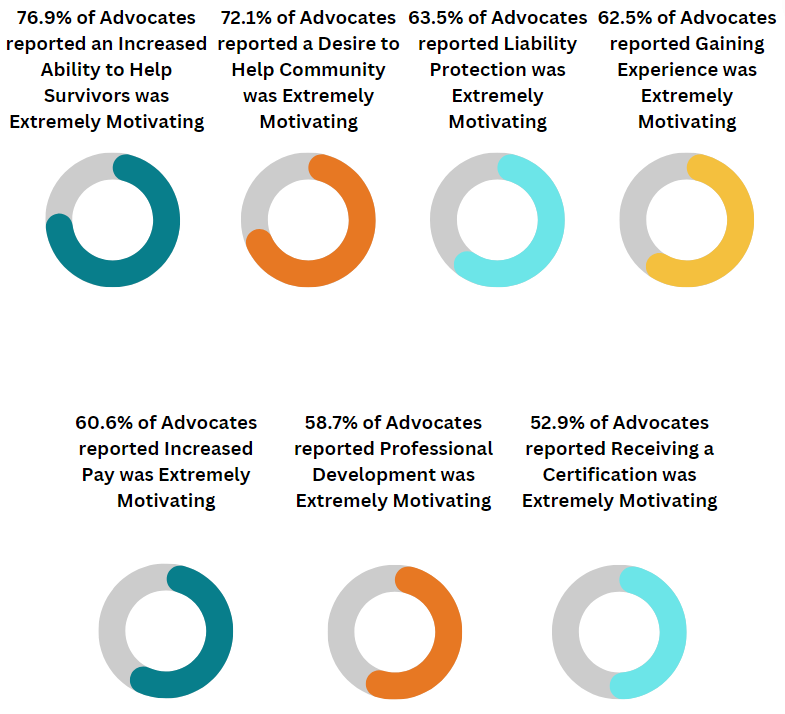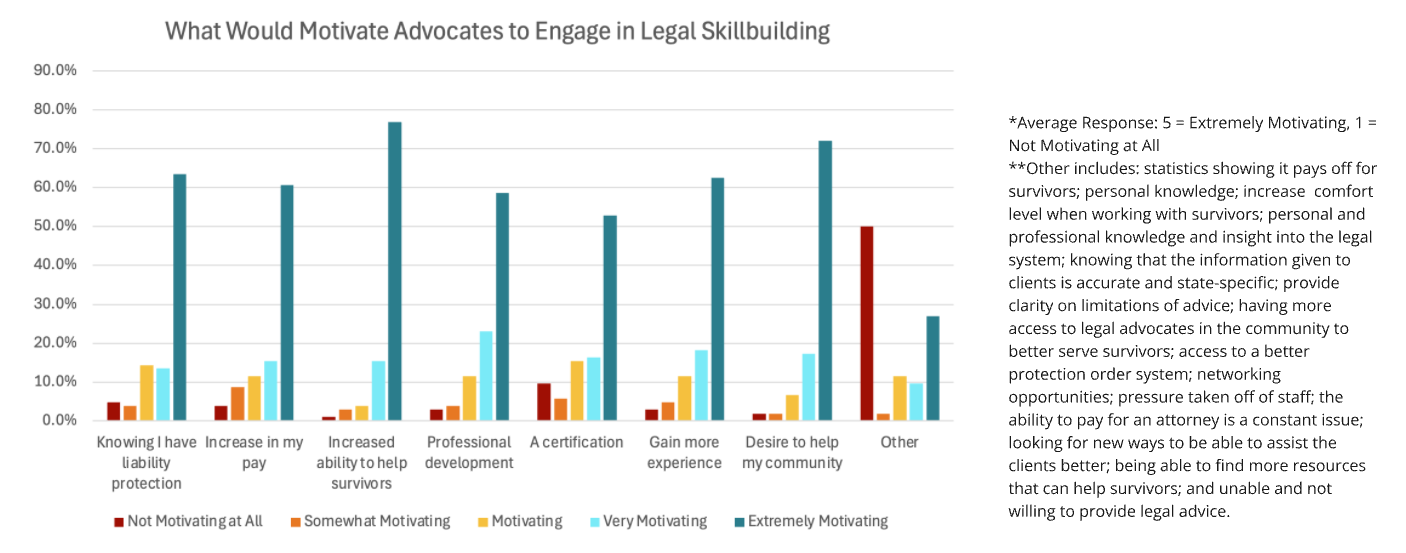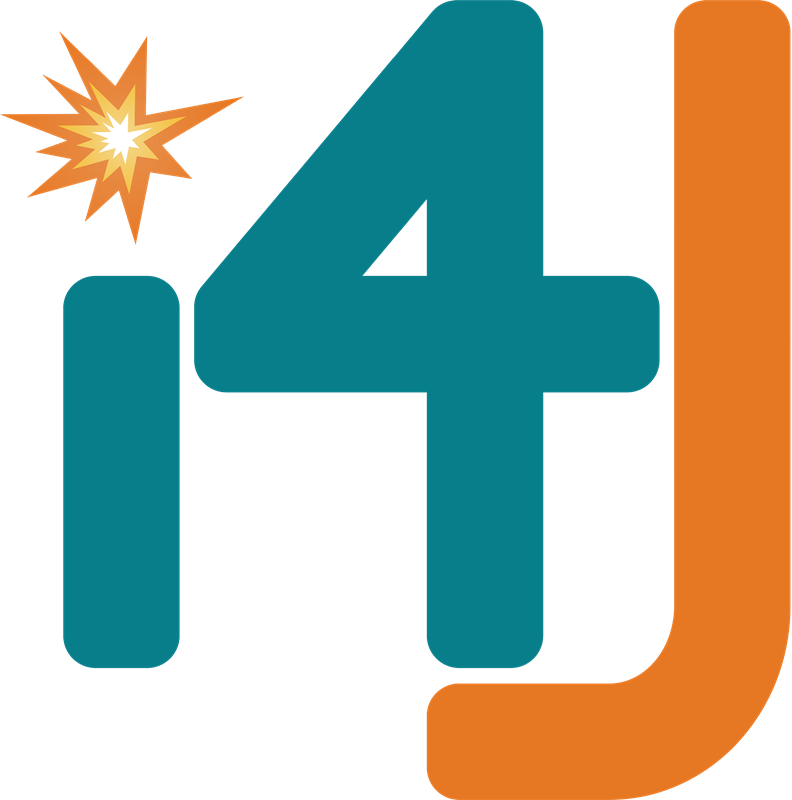What additional legal training would DV advocates want and need to feel equipped to give limited-scope legal advice?
What training do DV advocates already receive?
Currently, most organizations require a 40 hour training, while some have more condensed programs. This training is often provided through online courses. In some states, specific training is statutorily required. However, this required training is the minimum, and advocates are encouraged to complete additional training.
Training can be delivered to advocates through online courses, state initiatives, third parties, or internally as early as onboarding. Training for advocates on the difference between legal information and legal advice varies greatly between organizations and jurisdictions. Some have formal training, while others address the topic informally in regular staff meetings. Further, training content varies depending on the organization and the services provided.
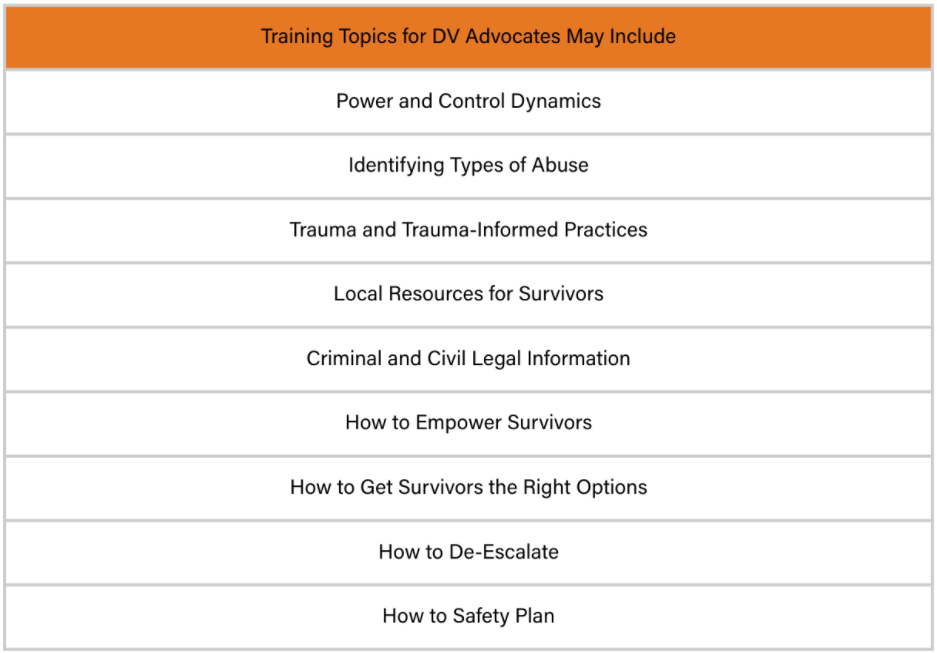
The variation across organizations and jurisdictions is beneficial to designing any specialized legal training program for advocates, because design choices can be made to integrate into existing modalities and structures.
Advocates are already used to receiving training components from lawyers.
Attorneys are involved in training advocates especially when it comes to training about where the line is between legal information and legal advice.
“[We have] a couple of attorneys that are great friends of [our organization] and…two board members that are also attorneys. And so we utilize them to help do the training around the differences between legal advice and legal information.”
– Organization Leader from the West
“[Our] Director of Programs is an attorney, so she makes sure we are all aware of not crossing a line to give advice.”
– Organization Leader from the Northwest
“[Our organization] partner[s] with legal providers to develop strategies and educate advocates.”
– Organization Leader from the Northeast
Training should include the scope of authorization, how advocates will know when they’ve reached the end of that scope, and what to do at that point.
Advocates and organization leadership were concerned that authorizing DV advocates to provide limited-scope legal advice would lead to advocates overstepping the authorized scope of service. Proper training and instruction would alleviate this concern for both advocates and organization leaders. Organization leaders and advocates believe any training program for advocates to provide limited-scope legal advice should include the following topics:

“Put together like training and protocols and guidance on that, and then be able to spend time with the staff really making sure that they understand how to apply that and what those limits are before doing it.”
– Organization Leader from the Northwest
Substantive legal topics covered in training should include the areas of civil law that advocates would like to provide legal advice about and the needs that survivors experience the most. Training on family law, legal procedure, assisting with forms, scope of services, and negotiation skills would increase advocate confidence in providing limited-scope legal advice to survivors.
Advocates indicated which legal training components should be required in training to increase their confidence in providing legal advice to survivors. Advocates reported these components would improve their confidence. Below are percentages of advocates who indicated that each of these components would increase their confidence. Advocates were asked to choose all that apply.
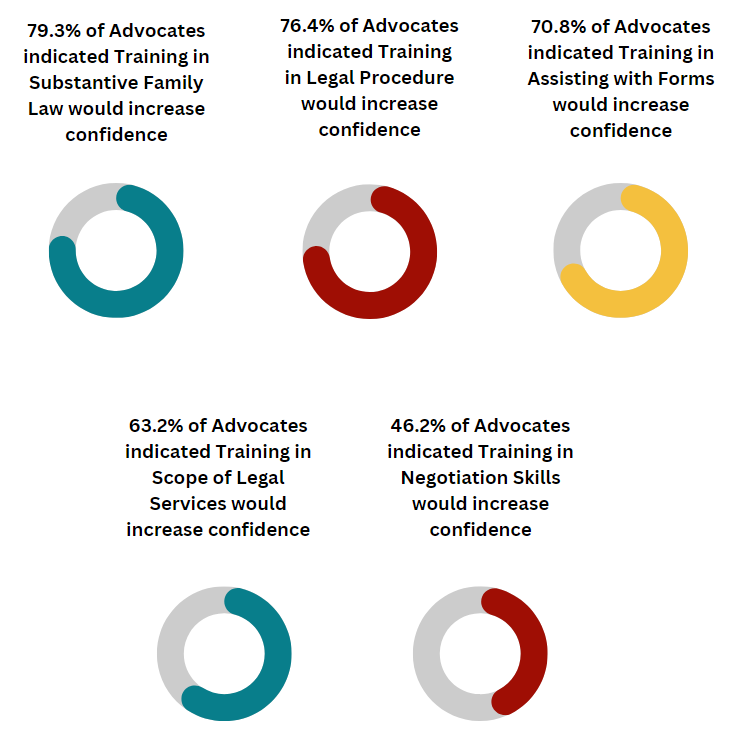
Advocates indicated what other legal skills would make them feel more confident providing legal advice to survivors. Other legal skills include: “any other trainings needed to provide survivors the information they need to make an informed decision,” “how to prepare yourself for trial,” “discovery,” “anything civil that is commonly discussed or utilized,” “the court process,” and “information about custody.”
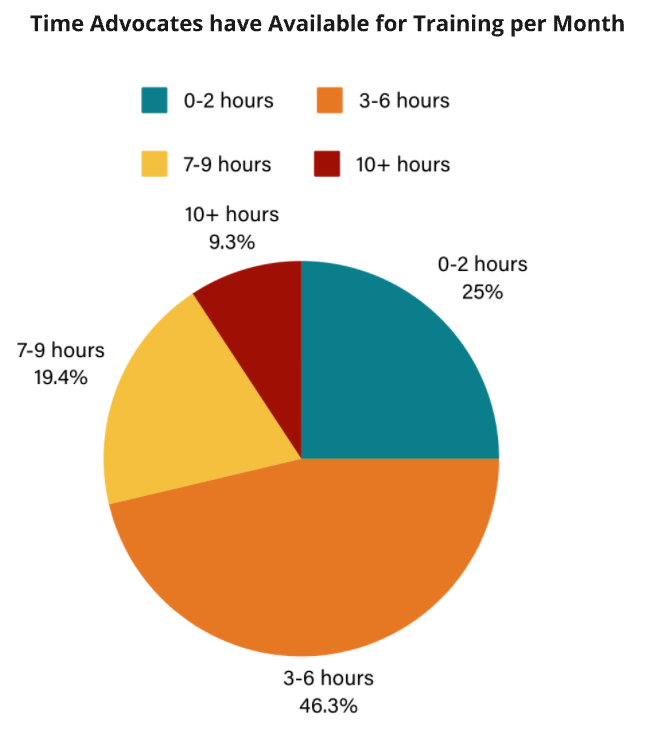
When determining the scope and structure of further training for domestic violence advocates, it’s important to take into consideration the capacity for this training that advocates have. Designing a training that is too arduous to complete in a defined timeframe will result in advocates not participating in that training. When thinking about what the advocates’ reported availability translates to over a year, the largest percentage of advocates could complete a training that is between 36 and 72 hours long. More information should be gathered to determine realistic timelines for training to span without impeding the advocates’ other work.
Advocates are motivated to complete a new training by a variety of factors.
Advocates indicated whether certain factors would motivate them to engage in training to provide legal advice to DV survivors. Advocates reported being extremely motivated by these factors.
